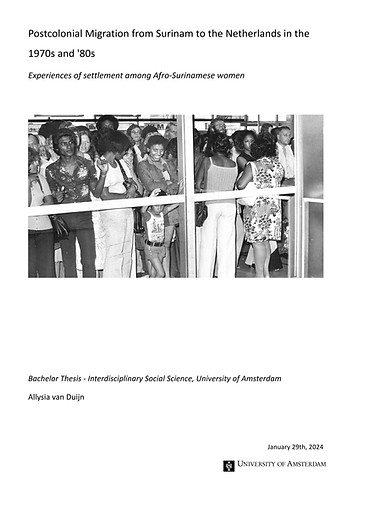
Black Europe zine, Summer 2025
This zine highlights and celebrates 6 Black European multidisciplinary creatives. The zine is a collection of collages and interviews with 6 Black European creatives who reflect on their Afropean identity, their practices, and contributions to the community. In this zine, I explore what the European ideal of racelessness does to Black cultural production. European racelessness shapes Black cultural production by compelling individuals to define themselves in a context that refuses to acknowledge their racial reality. In this way, Black cultural production in Europe becomes an exploration and reflection of one’s Blackness—a preservation of cultural ties while simultaneously forging something new. It is an act of resistance, a site of reflection, and a means of self-definition. This is the first edition of the zine, that is a continuous project.
Cover image by fashiondesigner Zhané Smit

Exhibition Plan 'I want Us to be Well, Black Liberatory Rest' (2025)
I want Us to be Well, Black Liberatory Rest is an exhibition plan that explores spiritual wellness and rest as liberatory practices for Black women and nonbinary people. The exhibition plan offers a space to reimagine rest as a radical act of resistance and care. Centering Black artists from across the Diaspora, it highlights how restful spiritual wellness is vital to both individual and collective healing within Black communities. Grounded in the understanding that Black people’s relationship to rest is shaped by histories of enslavement, forced labor, immigration, capitalism, and sexism, the exhibition redefines rest as a practice of liberation. It also challenges the commodification of wellness, advocating instead for a return to community-rooted, intergenerational practices of care.

Postcolonial Migration from Surinam to the Netherlands in the 1970s and '80s
Experiences of settlement among Afro-Surinamese women (2024)
The scarcity of archival records and knowledge concerning the settlement of first-generation Afro-Surinamese migrant women creates gaps in understanding the post-colonial migration history of the Netherlands. This qualitative research seeks to amplify the voices of these women, thereby contributing to the migration history of the Netherlands and enhancing transgenerational and historical knowledge among descendants. The research question focuses on the experiences of first-generation Afro-Surinamese migrant women settling in Amsterdam during the 1970s and 1980s. This study employs a cross-sectional design with 9 in-depth, semi-structured interviews, and utilizes photo albums during interviews to evoke memories.
The settlement experiences revolve around four themes: expectations before migration, adaptation to Dutch life, experiences of discrimination and women's attitudes, and the connection to Surinam after migration.Afro-Surinamese pre-migration expectations of the Netherlands were shaped by colonial Dutch education in Surinam, resulting in a narrow and romanticized image. Challenges in adaptation included difficulties with Dutch infrastructure, language, and the individualistic Dutch mentality.
Moreover, this study contributes to the comprehension of how Afro-Surinamese migrant women create coping mechanisms around discrimination, including: ignoring it, refraining from responding, or dismissing discriminatory acts as 'humorous' or 'innocent.' The Surinamese education plays a role in how ASW relate to discrimination in the Netherlands.Lastly, for some women Surinam is still a place that feels like coming home, which causes a dual sensation, existing mentally in two places. But overall Surinam has changed its meaning. Migration altered how ASW are perceived in Surinam, leading to feelings of discrimination and unwelcomeness in their home country.
“[..] especially during that time, you think you learn so much in school, but it's all about the Netherlands. Essentially, you knew nothing about your own culture, literally nothing [...] so usually when you come here, especially in my generation, you say you're coming to study or something, you know, but you actually have no clue what it’s gonna be like. When you arrive, that's when you see what life is really like because you have only learned the beautiful things about the Netherlands. [..] when you come here, you have to adapt again, you know."
(Mariska)